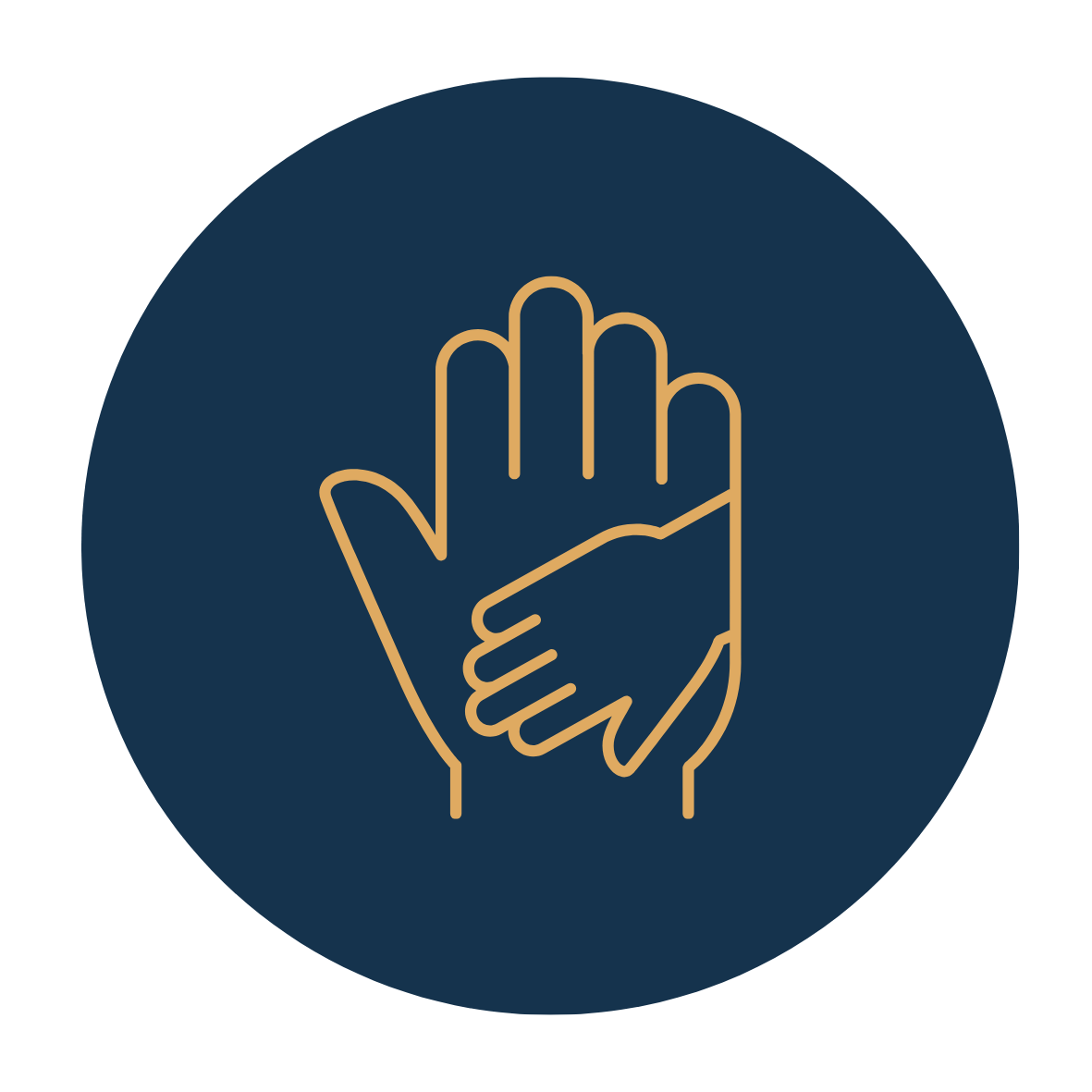Sessions in the topic of
Sociodrama and Youth – Raising the Next Generation:
Sociodrama of children and young people, and the professionals and institutions working with them
Sociodrama and Youth – Raising the Next Generation:
Sociodrama of children and young people, and the professionals and institutions working with them
INTRODUCING THE SCOPE WORKING GROUP
PRESENTERS: MEMBERS OF THE SCOPE WORKING GROUP:
ZOLTÁN BOGSCHÜTZ – KATALIN HEGYES – ANDREA KOCSI – ZSUZSANNA LAKATOS – FELÍCIA MENYHÁRT – EMŐKE TAKÁCS – JUDIT TÓTH-DÉNES
ZOLTÁN BOGSCHÜTZ – KATALIN HEGYES – ANDREA KOCSI – ZSUZSANNA LAKATOS – FELÍCIA MENYHÁRT – EMŐKE TAKÁCS – JUDIT TÓTH-DÉNES
DATE AND TIME: 26th of June, Wednesday 20:30-22:00
CONFERENCE TOPIC: Sociodrama and Youth – raising the next generation: sociodrama of children and young people, and the professionals and institutions working with them
TYPE: Presentation + Workshop
ROOM:
NUMBER OF PARTICIPANTS: 50
TAGS: Sociodrama and Youth, June26 Evening
ABSTRACT:
The SCOPE Working Group emerged from the PERFORMERS international sociodrama project.
Since 2021, the working group has been collaborating with institutions focusing on youth, utilizing sociodrama and child sociodrama methods.
We work with schools, children care homes, correctional facilities, family shelters, and educational support centers. Our aim is to support these institutions towards more democratic operation, ensuring safety for both the professionals and the children they serve, while cultivating a nurturing, supportive environment. To accomplish this, we work with groups of children considering the institutional settings in which they reside, and seeking partnerships with facility administrators, leaders, and professionals.
Our presentation provides a concise overview of our journey thus far, highlighting the challenges encountered, the solutions devised, and the outcomes attained.
ABOUT THE PRESENTERS:

Zoltán Bogschütz is a social worker, social politician and social manager. He has gained experience in various fields, especially in alternative sanctions and child protection.
Zoltán has more than two decades of training experience in national and international projects, which he is constantly expanding with coaching and facilitation techniques, while also adding psychodrama and sociodrama elements.
His participation in the SCOPE Working Group inspires him to create new viewpoints and values in institutional drama situations.

Katalin Hegyes is a trainer, communication expert, bibliodrama assistant and psychodrama leader, working with sociodrama in social institutions and mainly in schools.
She attaches particular importance to building small communities, fostering acceptance of differences and freedom from prejudice.
She is interested in using sociodrama to raise environmental awareness and strengthen local initiatives, too.
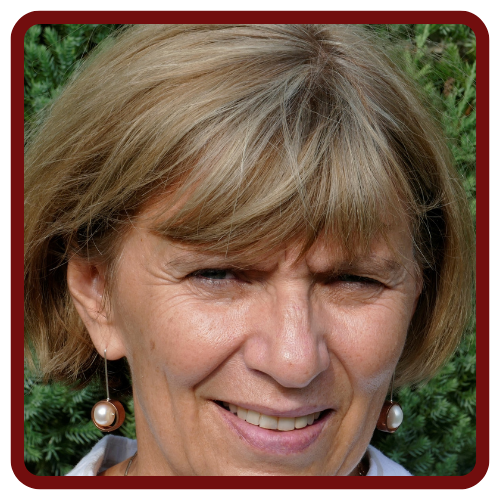
Andrea Kocsi is a children’s psychodramatist, psychodrama leader for adults, monodrama counsellor, sociodrama trainer.
She is a teacher and educational expert.
As one of the four founders of the SCOPE Working Group, her main interest is establishing drama in educational institutions, helping both students and teachers.

Felícia Menyhárt has been a member of the SCOPE Working Group for over a year. She specializes in utilizing institutional drama within social institutions and schools to foster improvement and collaboration in communities.
With a background in social policy and economics, she is a qualified teacher and trainer. Apart from her expertise in institutional drama, Felícia also contributes to community development through the application of playback theatre techniques.
She holds certifications as a psychodrama leader, sociodrama assistant, focus trainer, and is a candidate for mental health practitioner. She is a firm believer in the effectiveness of democratically functioning, self-renewing small communities, and her experience is that SCOPE’s methodology contributes positively to this vision.

Zsuzsanna Lakatos is a social pedagogue, biology teacher, drawing examination consultant and special education assistant.
She has many years of experience in the field of child protection, and is currently in charge of the professional coordination of a Refugee Accommodation to which underprivileged Transcarpathian Roma families have applied for asylum.
She has been using for three years the toolbox of sociodrama and children’s drama in child protection institutions as well as in refugee shelters.

Emőke Takács is an adult and child psychodramatist, coach, social worker, migration and intercultural expert.
She works as a Project Coordinator at the Jesuit Refugee Service Budapest, Hungary.
She is also a member of the SCOPE Working Group.
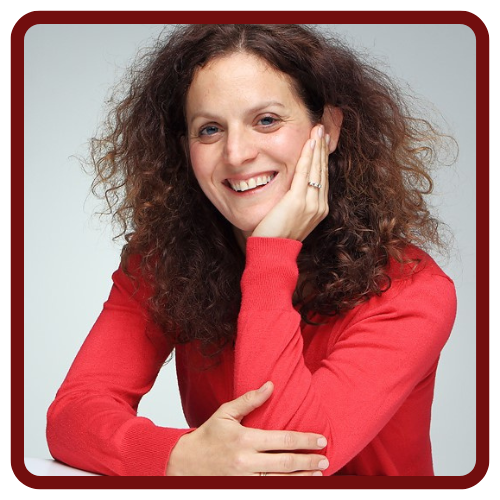
Judit Tóth-Dénes has been a member of the SCOPE Working Group for 2,5 years, she works with institutional drama in schools and social institutions (family foster care homes, youth detention centers) to improve communities.
Judit studied sociology and journalism.
She is an art therapist, psychodrama assistant and coach.
She believes that the SCOPE’s methodology affects the whole institute that they work with
SOCIODRAMA WITH CHILDRENS GROUPS IN THE CLASSROOM AND IN THERAPY
PRESENTER: REBECCA WALTERS
DATE AND TIME: 27th of June, Thursday 10:00-12:30
CONFERENCE TOPIC: Sociodrama and youth – raising the next generation: sociodrama of children and young people, and the professionals and institutions working with them
TYPE: Workshop
ROOM:
NUMBER OF PARTICIPANTS: 22
TAGS: Sociodrama and Youth, June27 Morning
ABSTRACT:
Sociodrama is a natural, powerful and playful method for helping children develop problem solving skills and try out new behaviors and roles. It helps children learn how to self-regulate and develop impulse control as well as to safely and appropriately express strong feelings. Sociodrama can be used to address social issues that arise in the classroom and on the playground such as stealing, fighting, bullying and intolerance. Sociodrama can be used to address issues that come up in counseling and therapy groups such as dealing with abusive siblings, displacement, the absence of parents due to death, divorce and incarceration of parents. The use of sociodramatic stories provides the necessary distance for younger children to address difficult feelings and issues. In this highly interactive workshop participants will patriciate in sociodramatic structures that work well with children ages 6-12 including the Empty Chair(s), Fairytales, Sociodramatic Heroes and Role Training for New Behavior.
Participants will be able to
- distinguish between sociodrama and psychodrama and when to use which
- describe at least two sociodramatic structure that work with children’s groups
ABOUT THE PRESENTER:

Rebecca is the Director of the Hudson Valley Psychodrama Institute (since1989). She was Director of Psychodrama Services at a Four Winds Psychiatric Hospital where for twenty five years she ran psychodrama and sociodrama groups on inpatient and outpatient child, adolescent and adult units. For over forty years she used sociodrama in in therapy and in recovery groups, education and training. Rebecca has taught sociodrama and psychodrama throughout the world. She was the 2018 recipient of American Society of Group Psychotherapy and Psychodrama (ASGPP) JL Moreno Award for lifetime achievement.
MAKING SAFE SPACE AND TRANSFORMATION THROUGH DRAMA IN INSTITUTIONS
WORKING WITH VULNERABLE YOUNG PEOPLE
PRESENTERS: SCOPE MEMBERS
WORKING WITH VULNERABLE YOUNG PEOPLE
DATE AND TIME: 27th of June, Thursday 14:00-16:30
CONFERENCE TOPIC: Sociodrama and Youth – raising the next generation: sociodrama of children and young people, and the professionals and institutions working with them
TYPE: Workshop
ROOM:
NUMBER OF PARTICIPANTS:
TAGS: Sociodrama and Youth, June27 Afternoon
ABSTRACT:
During the PERFORMERS international sociodrama project, which took place from 2017 to 2022 under the auspices of the Hungarian Psychodrama Association, a distinct sociodrama methodology was developed in collaboration with institutions dedicated to serving disadvantaged children and youth. Since 2022, we have continually refined and disseminated this approach in various settings, including schools, children’s care homes, correctional facilities, family shelters, and educational support centers. This methodology represents a unified, trauma-informed group approach that integrates elements from sociodrama and child psychodrama, tailored to the specific needs and contexts of each institution.
In 2022, our team transitioned to the Scope Institutional Sociodrama Working Group (known as Hatókör Műhely in Hungarian), evolving into an independent, interdisciplinary collective of Hungarian professionals utilizing sociodrama to positively impact institutions and to create a safe and supportive atmosphere within educational, social care and child care settings.
During our sessions, participants will gain firsthand experience with our child-sociodrama method, witnessing how we facilitate group dynamics and cultivate an environment conducive to fostering the holistic growth of vulnerable young people.
ABOUT THE PRESENTERS:

CO-CREATING SOCIODRAMA WITH CHILDREN
PRESENTER: DANIELA TAHIROVA
DATE AND TIME: 28th of June, Friday 14:00-16:30
CONFERENCE TOPIC: Sociodrama and youth – raising the next generation: sociodrama of children and young people, and the professionals and institutions working with them
TYPE: Workshop
ROOM:
NUMBER OF PARTICIPANTS: 15
TAGS: Sociodrama and Youth, June28 Afternoon
ABSTRACT:
We will combine an idea of Gianni Rodari for creating a fairy tale or a story and the ideas of Moreno’s about sociodrama.
According to Gianny Rodari there are a Hero, a Valiant, a Secret, a Fraud, a Helper, Magic gift, a task, a question in every good story or fairy-tale.
We are considering thinking about these characters as social roles and use them for making a sociodrama together with children – The conductors and children chose a topic, everyone chooses a role among Hero, Valiant…, build a stage, and create a story playing together with children- spontaneously, improvising, experimenting.
The participants in our workshop will have the opportunity to experience this process of sociodrama from the role of the adult or from the role of the children.
We will also share this experience at the end of the workshop.
At the end of the workshop the participants will have a better understanding about this kind of work with children and will be able to apply it in their field of work.
ABOUT THE PRESENTER:

Daniela Tahirova has a master’s degree in pedagogy, speech therapy and psychology. Psychodrama Therapist, Director of Psychodrama with Children, Family Therapist. She is conducting therapy groups for children – according to the method of A.Aachinger and W.Hall and for adults under the supervision of Dr. Daniela Simmons. Daniela Tahirova is the director of the “Psychodrama and Action Methods in Education” program, which is certified by the Ministry of Education and Science at the Adler Institute-Bulgaria. Founder and part of the board of the Balkan Association of Psychodrama, Sociodrama and Active Methods. She trains, practices and teaches Tele’Drama and GroupTherapy for children in Bulgaria.
EMPOWERING TEACHERS:
INTEGRATING SOCIODRAMA AND THEATER IN PEDAGOGY
PRESENTERS: ÁGNES BLASKÓ – MÓNI DURST – KRISZTINA GALGÓCZI – ANDREA KOCSI
INTEGRATING SOCIODRAMA AND THEATER IN PEDAGOGY
DATE AND TIME: 27th of June, Thursday 14:00-16:30
CONFERENCE TOPIC: Sociodrama and youth – raising the next generation: sociodrama of children and young people, and the professionals and institutions working with them
TYPE: Workshop
ROOM:
NUMBER OF PARTICIPANTS:
TAGS: Sociodrama and Youth, June27 Afternoon
ABSTRACT:
When we launched our training program in the fall of 2022, the shadow of the status law loomed over teachers’ heads (a law recently introduced in Hungary that further restricted the mobility and personal rights of teachers) and some were even involved in protests or seeking alternative employment. School faculties were fragmented, and students were learning from home. In the midst of these uncertain times, we were unsure if there was a demand for yet another training program, but we sensed a need for support. Therefore, we organized workshops, and to our surprise, the available slots were filled within days.
Our 60-hour accredited teacher training program, held under such circumstances, had two main objectives. Firstly, to introduce teachers to the concept and approach of sociodrama, enabling them to bring this perspective into their schools. Secondly, to provide educators with straightforward action-method techniques that they can apply in their daily work when addressing disengaged and seemingly powerless adolescents or when attempting to make the often traditional lessons relevant to contemporary youth.
What made this training unique was our collaboration with the Radnóti Theater in Budapest, which provided an opportunity to bridge the gap between the artistic experience and students, who are mostly trained on fast-paced digital cultural products.
In our workshop, we demonstrate how to engage and motivate high school students through sociodrama. The workshop uses a scene from a play as a starting point, illustrating how sociodramatic exercises can be integrated to address questions and issues that resonate with students.
Participation in the workshop provides ideas on how to:
-make students more active in the classroom.
-educate students in critical thinking.
-increase their empathy.
-boost their self-confidence.
-awaken students’ creativity.
-process issues that affect them through a theater performance.
ABOUT THE PRESENTERS:

All four of us were members of the PERFORMERS international sociodrama methodology project (2016-2021). We served as authors and editors for the books that emerged from it. We developed the pilot model for sociodrama training in Hungary and conducted one of the pilot trainings. In addition, we work with sociodrama in various fields, including schools, universities, healthcare, theater, and social services.
“SUPPORT IDENTITY AND PROMOTE INTEGRATION AT THE SAME TIME, AS WHEN WORKING WITH CHILDREN IN GROUPS”
PRESENTER: MARIA GABRIELLA NICOTRA
DATE AND TIME: 28th of June, Friday 14:00-16:30
CONFERENCE TOPIC: Sociodrama and youth – raising the next generation: sociodrama of children and young people, and the professionals and institutions working with them
TYPE: Workshop
ROOM:
NUMBER OF PARTICIPANTS: 20
TAGS: Sociodrama and Youth, June28 Afternoon
ABSTRACT:
The objective of the workshop is to propose a Sociodrama experience in which the group starts from a process based on essential communicative elements that allow individual defenses to be lowered and let a new space for a shared story.
AIMS
- To connect one’s own origins and stimulate pre-verbal communication, in an ontogenetic, and phylogenetic sense, using every sense and modality.
- To search for group times and rhythms as a consequence of respecting the personal time of each one.
- to discover traditional elements and ancient cultures that can be intertwined in a common here and now.
The objective of the workshop is to propose a Sociodrama experience in which the group starts from a process based on essential communicative elements that allow individual defences to be lowered and create a new space for a shared story.
Multiculturality is an essential human characteristic that allows each visitor to recognize in the lands where he arrives and stops, a part of himself of his culture, his world, his sounds, his origins, his essence.Observing the process of culture we see that history does not proceed in leaps. The succession of social movements of populations who overlap, contrast, assimilate and differentiate in a continuous movement causes the re-emergence of cultural resources and values even when they seemed gone forever.
The action becomes an instrument to overcome the limits in the ability to develop concepts while changing context and habits.
ABOUT THE PRESENTER:

Psychologist, group-psychotherapist, psychodrama therapist. Psychodrama and socio-drama for Prevention-creative, training and supervision groups, more than 40th years experience.
National Co-President A.M.P. and director of Sicilian Session A.M.P. (Associatione Mediterranea di Psicodramma).
Workshops: IAGP Sociodrama Conference Iseo 2019
IAGP congress Malmo Sweden 2018
IAGP Congress Rowini Croatia 2015
IAGP Sociodrama Portugal 2014
Symposium and workshops -Rome Italy 2009
Workshops -S.Paolo Brazil 2006
Workshops -FePTO from 2010 to 2018 in Europeean Psychology Congress 2015 /2018
Workshops in Annual meetings “ Associazione Mediterranea di Psicodramma” from 2000 to 2023
SOCIODRAMA IN TEACHER EDUCATION
PRESENTERS: MARGARIDA BELCHIOR – LUZIA LIMA-RODRIGUES
DATE AND TIME: 28th of June, Friday 14:00-16:30
CONFERENCE TOPIC: Sociodrama and youth – raising the next generation: sociodrama of children and young people, and the professionals and institutions working with them
TYPE: Workshop
ROOM:
NUMBER OF PARTICIPANTS: 35
TAGS: Sociodrama and Youth, June28 Afternoon
ABSTRACT:
In this workshop we aim to share our work as sociodramatists and teacher educators in action. Working with sociodrama, action and expressive methods in teacher education for us is to work for social justice, equity, and inclusion in schools, facing the challenges of diversity, exclusion and minorities. This means that from our own perspective, sociodrama allows us to stress a participatory and democratic pedagogy, where teachers and students, together, can learn and build knowledge in interaction through dialogue, co-creating a more participative and democratic environment. In such classrooms the teacher is no more the center of the learning process, and the communication is not anymore unidirectional. Students engage themselves in the learning process and take a proactive role regarding both their individual trajectories and social process of group development. They can simulate situations and play their future roles. They can also put themselves in the role of parents, community members or colleagues. Doing so, we think of an isomorphic process through which probably these future teachers will develop themselves as more flexible, open, and good listener professionals and human beings.
Learning objectives:
- To experience and learn from some shared exercises used by the authors.
- To acknowledge the role of sociodrama and expressive action methods in teacher education and in schools.
References:
Belchior, M. (2021). Becoming a Sociodramatist: Sociodrama in Education. In Sociodrama – The Art and Science of Social Change (pp. 266–286). L’Harmattan. Eds. D. Adderley, M. Belchior, A. Blaskó, K. Galkoci, M. Maciel, J. Teszary, M. Westberg, and M. Werner (Eds.), http://sociodramanetwork.com/sociodrama-theory-and-methods/
Lima-Rodrigues, L. (2021). Sociodrama and Action-Based Learning in Teacher Training Some challenges to “provoke” inclusion. In D. Adderley, M. Belchior, A. Blaskó, K. Galkoci, M. Maciel, J.Teszary, M. Westberg, and M. Werner (Eds.), Sociodrama: the art and Science of Social Change (pp. 287–301). L’Harmattan. http://sociodramanetwork.com/sociodrama-theory-and-methods/
Lima-Rodrigues, L., and Belchior, M. (2022). Aprendizagem baseada na Ação: (trans)formação de professores para a inclusão. In A. P. Pereira, M. Loureiro, E. de, H. Reis, and R. C. Rodriguez (Eds.), Atas Congresso Luso Brasileiro de Educação Inclusiva (pp. 184–187). https://conlubra2022.weebly.com/uploads/1/6/4/6/16461788/atas_conlubra_vers%C3%A3o_final.pdf
Sternberg, P., and Garcia, A. (2000). Sociodrama: Who’s in Your Shoes? (S. Edition-Praeger, Ed.). Praeger Publisher.
ABOUT THE PRESENTERS:
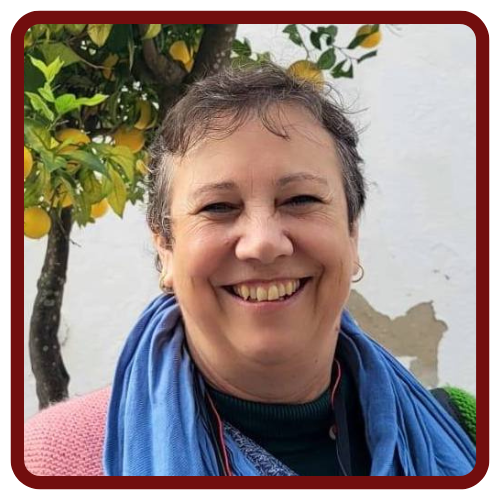
Margarida Belchior is a teacher, researcher and sociodramatist. She started her Sociodrama training in 2011 (SPP). She organized teachers Sociodrama training; was the leading person, in Portugal, for the PERFORMERS project (ERASMUS) and author in the books which resulted from this project. She co-created the project Public Sociodrama with Art and led Sociodrama workshops in international settings, like the 6th and 7th International Sociodrama Conference. She is part of TELE’Drama Team and is finishing her Post-Doctorate in Inclusion and Expressive Pedagogies, teaching, and doing research in Education at Lusófona University.

Luzia Lima-Rodrigues is a lecturer at the Universidade Lusófona and School of Education of the Setúbal Polytechnic Institute. She is a pedagogue, psychopedagogue, sociodramatist, PhD in Education from Unicamp/Brazil and post-doctorate in Special Education and Expressive Therapies (University of Lisbon). She conducts research into teacher training, action methods and expressive pedagogies, and is the author of several scientific publications in the field of Inclusive Education. She is a guest lecturer and teacher trainer, having worked in various countries such as Finland, Kazakhstan, Italy, France, China, Cape Verde, Scotland, Argentina and Brazil.
SOCIODRAMA AND BIOGRAPHY: PERSONALITY DEVELOPMENT IN ERIK ERIKSON’S THEORY
PRESENTER: GISLAINE LIMA DA SILVA
DATE AND TIME: 28th of June, Friday 14:00-15:30
CONFERENCE TOPIC: Sociodrama and youth – raising the next generation: sociodrama of children and young people, and the professionals and institutions working with them
TYPE: Symposium/presentation
ROOM:
NUMBER OF PARTICIPANTS: 50
TAGS: Sociodrama and Youth, June28 Afternoon
ABSTRACT:
Objectives: Promote the active learning of psychology students in the discipline of Developmental Psychology 2. Use sociodrama and the biography of important characters as a learning tool for the eight stages of Erik Erikson’s theory.
Theoretical foundation: Erikson (1998) considers the psychosocial development of personality in eight stages: Confidence vs. Mistrust (baby), Autonomy vs. Shame, Doubt (Early Childhood), Diligence vs. Inferiority (school age), Identity vs. Confused Identity (adolescence), Intimacy vs. Isolation (young adult), Generativity vs. Stagnation (Adult), Integrity vs. Despair (Old Age). Active learning presupposes the student as the protagonist of his/her process. Baptista (2019) points out the various acquisitions provided using play as a tool such as cultural aspects, skills and group coexistence.
Methodology: Sociodramatic presentation of the chosen person’s biography and relating their life experiences to the eight stages of Erik Erikson’s theory of the complete life cycle. Four meetings were held with two personalities per meeting: Marilyn Monroe, Napoléon Bonaparte, Chorão, Anitta, Frida Kahlo, Silvio Santos, Kurt Cobain, Cazuza.
Goals to achieve: Understand the construction process of sociodrama as a learning tool in the classroom. Appreciate the result of the presentations that took place in the class of 2023.
ABOUT THE PRESENTER:

Training: Psychodramatist (2004), Psychodramatist level II Didáta (2010).
Master: Psychology of Development and Learning. UNESP/Bauru/SP/BR (2008)
Teacher of the Psychology course at Unisalesiano – Lins/SP/BR (2004-2023)
Work carried out: mothers at a day care center in a Psychiatric Hospital and workers.
Group experiences in the preparation of Psychology students for internships in the community with psychodramatic games and sociodrama (2006-2024)
Papers presented:
Brazilian Congress of Psychodrama: Belo Horizonte-BR (2004), Recife-BR (2008), São Paulo – BR (2016)
Iberoamerican Psicodrama: Buenos Aires (2013), Chile (2015), Lisbon (2017)
Sociodrama Conference Peniche/Lisbon-on line (2021)
SOCIODRAMA IN A CENTER FOR THE STUDY OF MINORS AND COMMUNITY INTEGRATION (CEMIC):
STRENGTHENING SELF-ESTEEM AND RESILIENCE IN ADOLESCENTS.
PRESENTER: GISLAINE LIMA DA SILVA
STRENGTHENING SELF-ESTEEM AND RESILIENCE IN ADOLESCENTS.
DATE AND TIME: 28th of June, Friday 15:30-16:30
CONFERENCE TOPIC: Sociodrama and youth – raising the next generation: sociodrama of children and young people, and the professionals and institutions working with them
TYPE: Poster Presentation
ROOM:
NUMBER OF PARTICIPANTS: 50
TAGS: Sociodrama and Youth, June28 Afternoon
ABSTRACT:
Experience report of the Psychology course developed in a community center of studies for adolescents.
Objectives: Apply psychodramatic games to promote Psychology student learning and promote active participation to strengthen self-esteem and resilience with adolescents from two groups: fourteen years old (group one) and fifteen to sixteen years old (group two).
Theoretical foundation: Adolescence is understood as a set of physical and psychological changes that can generate crises. Aberastury and Knobel (2011) call this period the Normality Adolescence Syndrome. Erik Erikson (1998) identity versus role confusion.
Games are a favorable tool to promote spontaneity, creativity and offer a welcoming environment. According to Yozo (1996) they can be used due to their playfulness to work on conflicts.
Methodology: There were 15 meetings with each group with the participation of twenty three adolescents (14 years old) and twenty-eight adolescents (15 and 16 years old).
The following games were applied: I am a superhero, 10 things in common, acting out emotions, challenge games, adversity game, quality box, timeline, role reversal, seeking goals.
Goals to achieve: Apply the concepts and techniques learned in the classroom in groups in the community. Understand the development process of the Psychology intern and the group he directed.
ABOUT THE PRESENTER:

Training: Psychodramatist (2004), Psychodramatist level II Didáta (2010).
Master: Psychology of Development and Learning. UNESP/Bauru/SP/BR (2008)
Teacher of the Psychology course at Unisalesiano – Lins/SP/BR (2004-2023)
Work carried out: mothers at a day care center in a Psychiatric Hospital and workers.
Group experiences in the preparation of Psychology students for internships in the community with psychodramatic games and sociodrama (2006-2024)
Papers presented:
Brazilian Congress of Psychodrama: Belo Horizonte-BR (2004), Recife-BR (2008), São Paulo – BR (2016)
Iberoamerican Psicodrama: Buenos Aires (2013), Chile (2015), Lisbon (2017)
Sociodrama Conference Peniche/Lisbon-on line (2021)
EMPATHY IN ACTION:
EXPLORING SOCIODRAMATIC TECHNIQUES FOR HELPERS
PRESENTERS: GÁBOR CSUVIK – KRISZTINA GALGÓCZI
EXPLORING SOCIODRAMATIC TECHNIQUES FOR HELPERS
DATE AND TIME: 29th of June, Saturday 10:00-12:30
CONFERENCE TOPIC: Sociodrama and youth – raising the next generation: sociodrama of children and young people, and the professionals and institutions working with them
TYPE: Workshop
ROOM:
NUMBER OF PARTICIPANTS: 20
TAGS: Sociodrama and Youth, June29 Morning
ABSTRACT:
In this workshop, helping professionals and educators will gain insight and firsthand experience into how sociodramatic techniques can enhance their skills, especially in intercultural settings. Participants will explore their helper role and function as we gain insight into working with clients from diverse backgrounds. The workshop will also provide an opportunity to explore the sensitivities associated with disadvantaged group affiliations and stigmas, and their impact on the helper-client relationship.
The workshop’s methodology was conceived and refined in the unique setting of training volunteers for a suicide prevention line. The preparation, planning, and supervision of the approach were conducted within the context of the inaugural sociodrama training in Hungary.
ABOUT THE PRESENTERS:
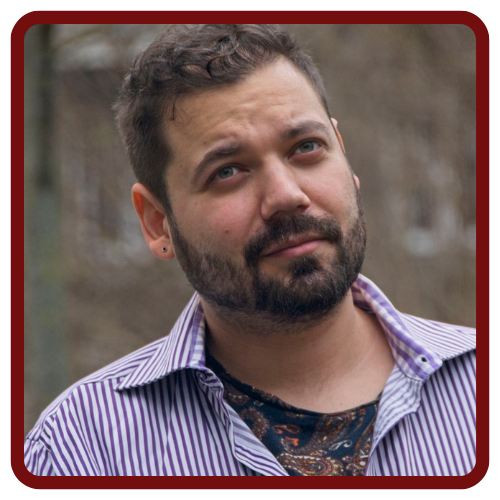
Gábor Csuvik, Sociodrama Working Group of the Hungarian Psychodrama Association
psychodrama assistant, sociodrama assistant, social worker
With a foundation in social sciences, Gábor has extensively explored the dynamics of training groups where diverse backgrounds and experiences intersect, often leading to challenges in establishing safety and facilitating self-expression. As an alumnus of Hungary’s inaugural sociodrama training program, he has incorporated sociodramatic techniques in his practice to foster cultural sensitivity and create inclusive environments for individuals from varied backgrounds. Furthermore, he is an active contributor to the Sociodrama and Critical Psychodrama Working Groups within the Hungarian Psychodrama Association.

Krisztina Galgóczi, Sociodrama Working Group of the Hungarian Psychodrama Association
psychodrama and sociodrama leader
For 7 years, she has been actively involved in sociodrama in the PERFORMERS international project, in university education, schools, social institutions, and public sociodrama events to address societal issues. She believes that sociodrama can lead to changes in society. She has participated in the PERFORMERS international sociodrama project and contributed as an editor and author to the resulting volumes. She has been leading the Sociodrama Working Group of the Hungarian Psychodrama Association since 2019.
SOCIODRAMATIC INTERVENTIONS WITH GROUPS IN SOCIAL DIFFICULTIES
PRESENTERS: PABLO ALVAREZ VALCARCE – PÉTER KLAUSZ
DATE AND TIME: 29th of June, Saturday 10:00-13:00
CONFERENCE TOPIC: Sociodrama and youth – raising the next generation: sociodrama of children and young people, and the professionals and institutions working with them
TYPE: Workshop and Presentation
ROOM:
NUMBER OF PARTICIPANTS: 100
TAGS: Sociodrama and Youth, June29 Morning
ABSTRACT:
WORKSHOP:
The workshop offers a view on sociodrama techniques applied in the context of social work with migrant communities. This method is used to foster social learning, mental health and interven-tions to provide young migrants an opportunity to gain insight into the obstacles and widen the repertoire of strategies when building their future in their new home country.
Theoretical background: Youth immigrants and their poorly structured families suffer a kind of personality disorder with a lack of mentalization abilities, lack of mental health attention and severe difficulties to become integrated into social and work structures. The best way to address this situation is through Specific Social Structures for them, that includes social learning and education, group sociodramatic interventions, support in work training and work searching and psychodramatic mental health assistance.
Methodology: Sociodrama , Psychodrama, Mentalization, Group for Social Active Learning
Learning objectives:
- Participants gain an understanding of the psycho-social background of working with migrant youth entering the labor market
- Participants try different sociodramatic and mentalization techniques they can use in their practices with migrant groups
PRESENTATION
The proposal contains presentations of projects from Spain and Hungary on how sociodrama and action methods can be effective tools in supporting marginalized youth when they enter the labor market. These share similar target groups (young migrants), and involve professionals in supporting roles (social workers, educators, psychologists). These groups’ social, economic or cultural backgrounds mean that they face multiple obstacles when aiming to get jobs and reach independence. The application of sociodramatic techniques fosters the identifying of such obstacles and experimenting with new strategies in work-related and family environments, supporting them to reach a higher level of independence, allowing them to create a new future for themselves.
Theoretical background: Youth immigrants and their poorly structured families suffer a kind of personality disorder with a lack of mentalization abilities, lack of mental health attention and severe difficulties to become integrated into social and work structures. Best way to address this situation is through Specific Social Structures for them, that includes social learning and education, group sociodramatic interventions, support in work training and work searching and psychodramatic mental health assistance.
Learning objectives: Giving examples of application of sociodrama techniques with migrant youth
Demonstrating modalities of sociodramatic techniques with youth and their supporters
ABOUT THE PRESENTERS:
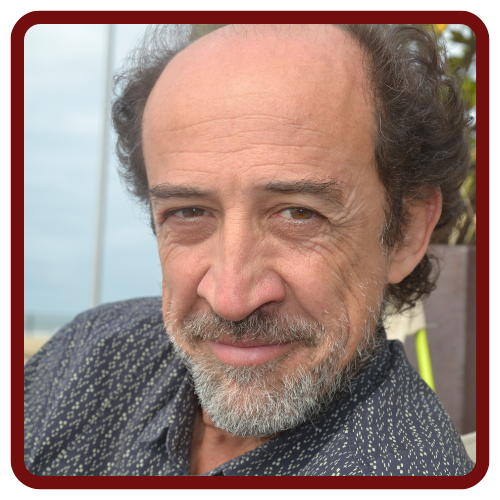
Pablo Alvarez Valcarce is a Director of Psychodrama and Sociodrama from Spain. Founder and Director of the Grupo de Estudios de Psicodrama de Madrid. He´s Supervisor member of the Spanish Psychodrama Association(AEN). He has extensive experience in psychodramatic and sociodramatic intervenctions in areas ranging from psychiatry to organizational coaching and social intervenctions. Actually he is overseer of the Team working in a program of Social learning and employment integration for young migrants at Madrid Municipal Gobernment, and also overseer of the Team at the Personality Disorders Unit at the R,Lafora Mental Hospital at Madrid.
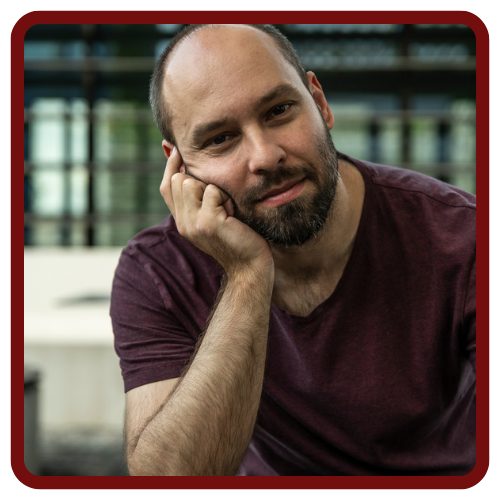
Péter Klausz – former student of Pablo Alvarez Valcarce, trainer at Artemisszió Foundation.
He is specialized in global education and social inclusion of marginalized groups, in his training practices he applies drama-based and active methods.
THE COLLABORATION BETWEEN SOCIODRAMA AND ART THERAPY FOR PREVENTION OF SCHOOL BULLYING
PRESENTER: LYDIA YORDANOVA
DATE AND TIME: 29th of June, Saturday 14:00-16:30
CONFERENCE TOPIC: Sociodrama and youth – raising the next generation: sociodrama of children and young people, and the professionals and institutions working with them
TYPE: Workshop
ROOM:
NUMBER OF PARTICIPANTS: Any
TAGS: Sociodrama and Youth, June29 Afternoon
ABSTRACT:
Bullying is a form of violent behavior that can take different forms including physical intimidation such as injury or the threat of it, spitting, pushing and kicking as well as non-physical intimidation such as verbal victimization including calling names, insults, spiteful taunts or mockery. Malicious gossip, spreading rumors and rejection from the group are also considered to be forms of bullying among school children. Due to the rapid development of technology, bullying has been extended and intimidation is being exercised through social media and electronic devices too.
The art therapy intervention is a helpful approach which can help build awareness about the harmful effects of bullying as well as identify the behaviors perceived by the students as bullying. This intervention influences directly the emotional sphere of children, develops their self-confidence thus creating a healthy psycho-social environment in our schools, forming positive conflict resolution skills and behavioural strategies in order to prevent bullying.
On the other hand sociodrama in education can enhance spontaneity and creativity, in both teachers and students, transform conflicts in useful learning situations, explore how we can live together in a better way and can also go much further than the well -known desk-pencil-and-paper learning tool, contributing to a more integrated development in all dimensions of school students’ personalities.
During this session the participants will be able to explore how the combination of these two methods in action works in order to successfully prevent bullying in schools. They will be able apply minimum 3 of the presented techniques in their work with school children.
ABOUT THE PRESENTER:
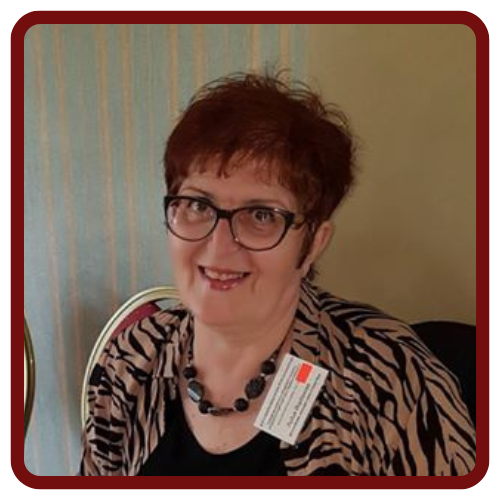
Lydia Yordanova – MA in Applied Psychology, Psychodrama therapist and educator, the founder and the director of ZS CONSULT Educational, Counselling and Training Centre, Varna, Bulgaria, Member of the Union of the Scientists in Bulgaria, Member of IAGP, the President of the Balkan Association in Psychodrama, Sociometry and Group Psychotherapy/BAPSGPT/. Has been working with individuals and groups of adults and children since 2007.
DREAMING AND DRAWING YOUR COMMUNITY’S FUTURE
PRESENTERS: FLAVIA BOCCHINO – MARIOLINA WERNER-GUARINO
DATE AND TIME: 29th of June, Saturday 14:00-16:30
CONFERENCE TOPIC: Sociodrama and youth – raising the next generation: sociodrama of children and young people, and the professionals and institutions working with them
TYPE: Workshop
ROOM:
NUMBER OF PARTICIPANTS: 20
TAGS: Sociodrama and Youth, June29 Afternoon
ABSTRACT:
Dream drawing (Disegno Onirico) with its roots in surrealism, archetypal theories, Goëte’s color theory, the amazing work of Bermolén and Dal Porto etc. is the ground on which the Holistic Psychodrama develops. We successfully apply this amazing and joyful tool to sociodrama and Socio-psychodrama. Individual works develop and expand, linking personal experience to issues concerning the whole group, the society, or the entire planet. The aim of our workshop is to link the group’s archetypal language to Sociodrama’s collective character and aims. We will identify, through spontaneous associations and drawings, our needs and aspirations as starting points and find new common “Visions for a Collective Future”. While using the symbolic language of colors and shapes which are common to every (human or not) being in the world, you do NOT have to be good at drawing!
Two learning objectives:
- to know more about sociopsychodrama and its theoretical framework
- to show how Dream Drawing can contribute to personal, spontaneous expression as well as to the group’s cohesion and to the sociodramatic work
ABOUT THE PRESENTERS:
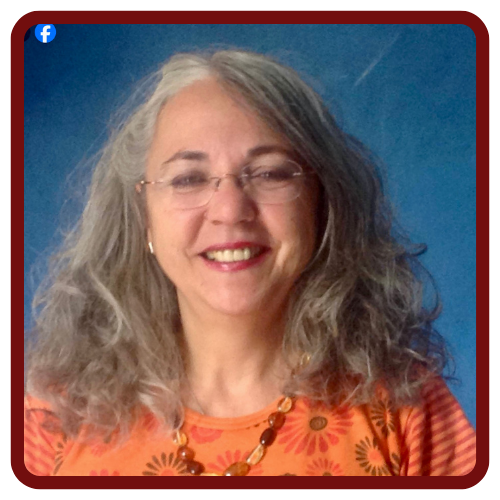
Flavia Bocchino: Psychodramatist, pedagogist, dance- and art therapist, lives in Florence. She is the co-founder and trainer of the “Accademia di Disegno Onirico e Psicodramma Olistico Bermolen – Dal Porto”.
The Akademy, accredited by the University of Florence, has 8 different locations in Italy.

Mariolina Werner Guarino: Psychodramatist and sociodramatist, trainer and supervisor, part of the Swedish PsykodramaAkademin. Working with young adults in schools and institutes and within European Projects.
As a retired psychology teacher, she works for the Swedish National Agency of Upper Education in the frame of the Psychology Program.
Online Sessions
IDENTITY AND BELONGING IN A MULTICULTURAL WORLD
PRESENTER: SAMUEL YIE
DATE AND TIME: 28th of June, Friday 17:00-19:00 (Central European Time)
CONFERENCE TOPIC: Sociodrama and youth – raising the next generation: sociodrama of children and young people, and the professionals and institutions working with them
TYPE: Workshop
LOCATION: ZOOM
NUMBER OF PARTICIPANTS: Any
TAGS: June28 Online
ABSTRACT:
In the past, individuals easily identified with a culture when everyone in their community formed a social consensus, and there was equal sympathy among members on most issues. However, globalization has brought people closer together physically, mentally, and technologically. Now, it is more challenging to define one’s culture by geographic location, national borders, or even race. For example, a teenager from Hungary, Nepal, and Indonesia might identify more with the YouTube or TikTok channel they all commonly subscribe to than their national heritage. An expatriate teenager might not feel a sense of belonging to any nationality, perceiving themselves as an international orphan. The multicultural aspect of modern society inevitably forces us to accept complex identities that may not conform to any traditional norms of nationality or demographics.
So, where do I fit? Or do I need to fit in at all?
After this session, participants will be able to:
- Understand the complexity of cultural identity and the dynamics of groups in our society.
- Strengthen their sensitivity towards cultural differences while interacting with individuals and groups.
- Explore their own cultural anchors that either differentiate or associate them with various communities and society.
ABOUT THE PRESENTER:
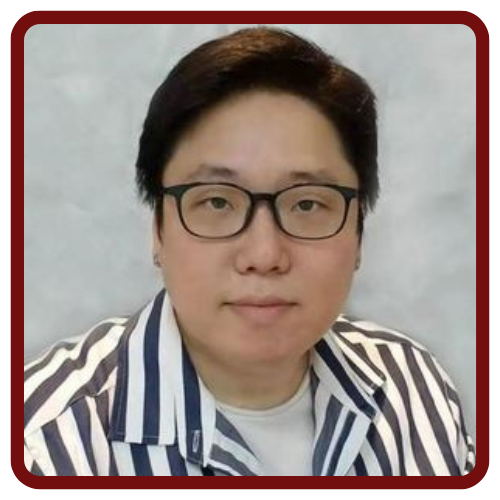
Living in multiple Eastern and Western cultures and with backgrounds in Counseling, Psychology, and a minor in International Studies, I trained and worked in the field of sociodrama and psychodrama for over 13 years. I work mostly with adolescents and teenagers, facilitating programs in education and social issues that teenagers face each day. Main focus is expat teenagers with multicultural backgrounds, Third Culture Kids, and teens with identity struggles. Currently member of “Korean Association for Psychodrama and Sociodrama” and certified BP3 in “Korean Bibliodrama Association” and CTP-3 in “Tele’Drama International”.
